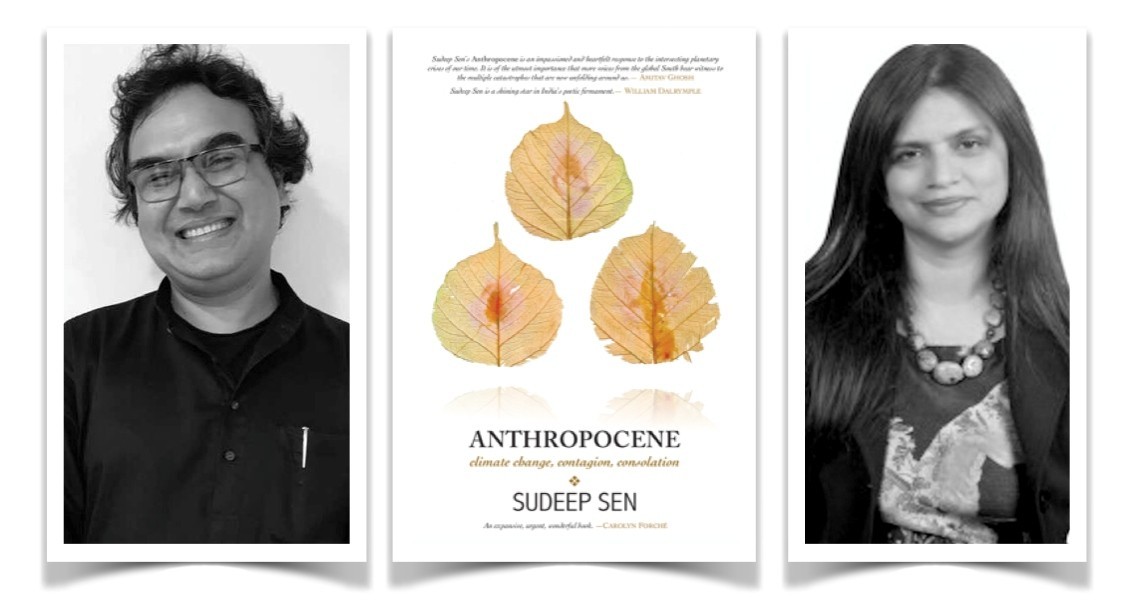Poetry of Crises and Loss

What windows can words open when the world is confronted with unprecedented realities? From the pandemic to climate change, can poetry navigate us through the alienation and chaos of our times? On September 23, 2021, Columbia Global Centers | Mumbai organized a conversation between poet, author, literary editor, and alumnus of Columbia Journalism School, Sudeep Sen, and the Center’s Director, Ravina Aggarwal to address how poetry can be harnessed to create spaces of solidarity, reflection, and healing.
The program also marked Climate Week NYC as climate change has been a central motif in Mr. Sen’s work for over twenty years. Framing it as more than a weather-related or geological issue, he has explored the political, emotional, and human facets of climate change. His recently published book, Anthropocene: Climate Change, Contagion, Consolidation, captures climate change tragedies through stylistic innovation and by incorporating elements of photography, commentary, and flash fiction. The book, from which he read out select pieces, places a sharp focus on the crises of climate change from both, the vantage point of the global as well as that of the local and familiar, especially New Delhi, the city which he calls home. Images of the city’s infamous toxic air and its brown hues of mud and dust recur in his poems.
Contextualizing the pandemic as an iteration of the disasters wrought by human exploitation of nature, Mr. Sen reflected on the strange environment of the lockdowns that germinated in his book. He spoke of the captivating neem tree beside his house and the twitter of birds, distanced but friendly interactions with neighbors on adjacent terraces, and the quiet and solitude of quarantine amidst the horrors unfolding in the world. Sharing the experience of writing and publishing during the pandemic, he elaborated on the challenges of creating works that could go beyond soundbites and become lasting records of the realities they capture.
In addition to Mr. Sen’s writing, the program also delved into the status of poetry during the pandemic. Dr. Aggarwal noted that the American Academy of Poets had recorded over a 100% increase in readership on its website over the course of the pandemic. And in spite of the cancellation of literary festivals and in-person events, virtual platforms had allowed for new kinds of global engagement and collaboration among poets and other creative professionals. Such global exchange, Dr. Aggarwal observed, had taken up a renewed significance in our current times, from scientists working across borders to find a cure to artists collaborating virtually to share and even create impassioned works. She emphasized that working across borders and beyond disciplinary silos was even more critical when dealing with events as mammoth as climate change and the pandemic.
The webinar was attended by a number of educators, students, and cultural professionals and ended with a lively question and answer session. After expanding on his own creative practices and works, Mr. Sen shared a hopeful message to aspiring poets, encouraging them to read vociferously, write consistently, and study various literary traditions to sharpen their own practice and better articulate the lived experiences and realities of our times.